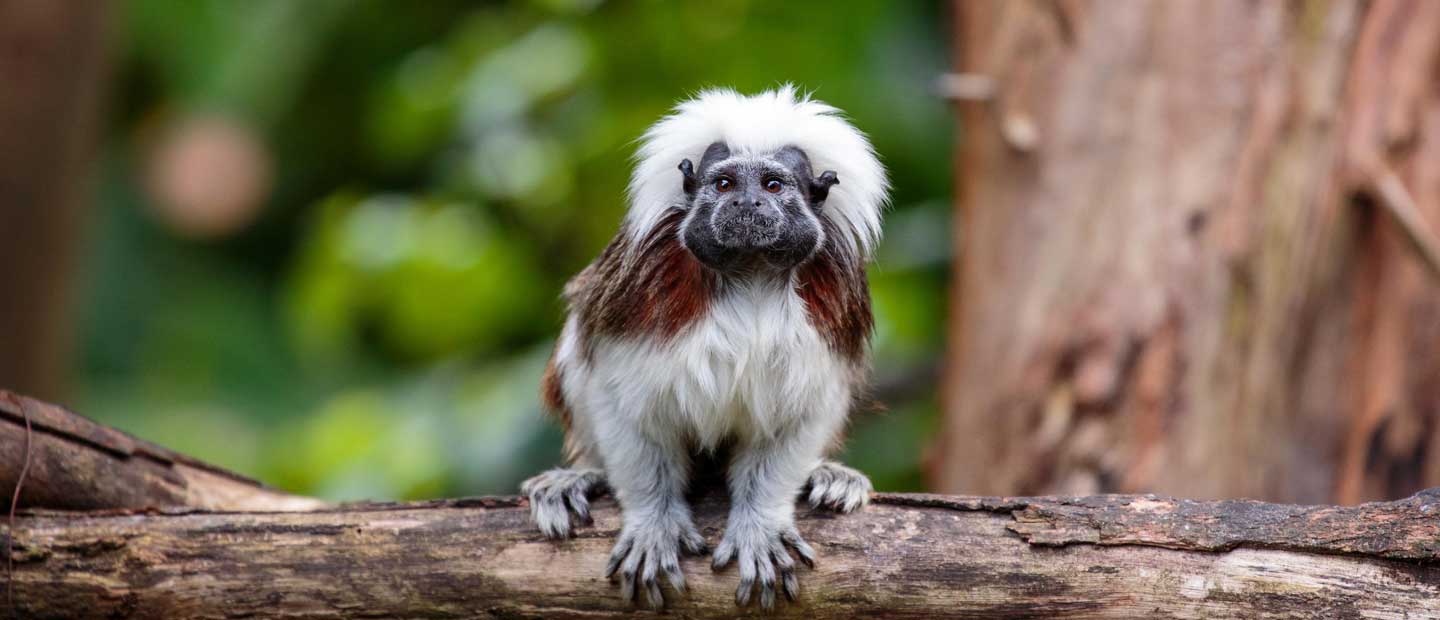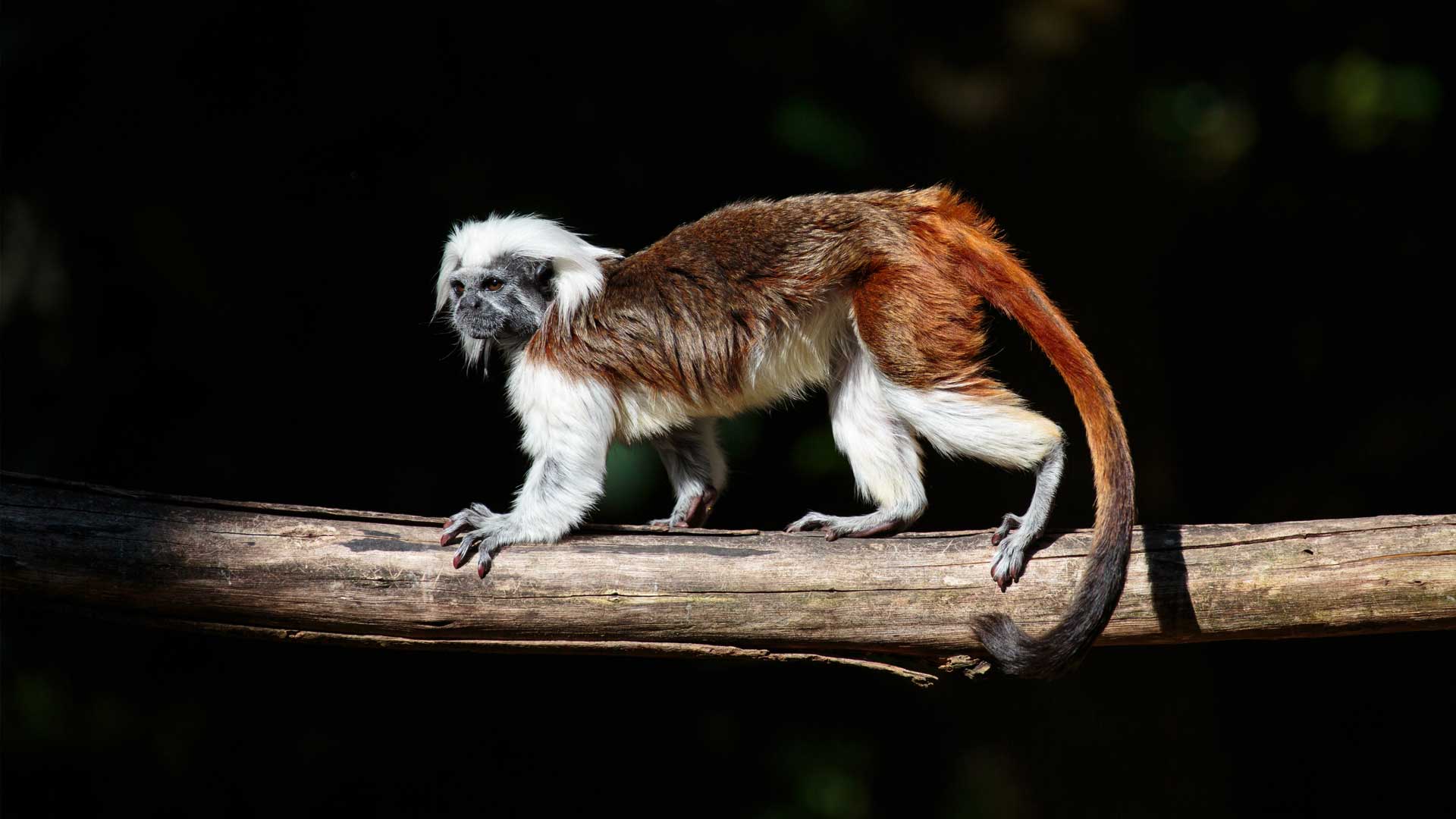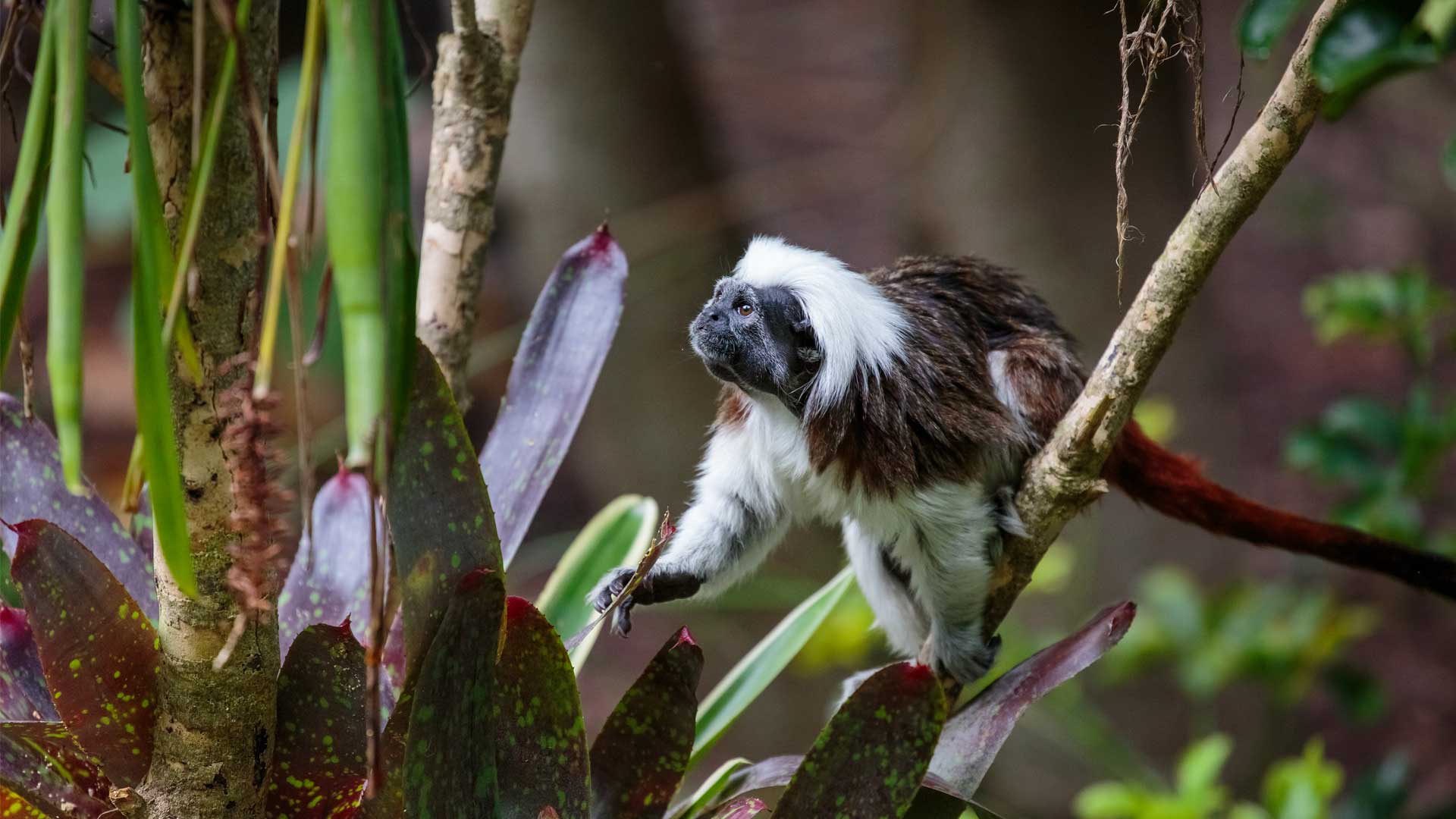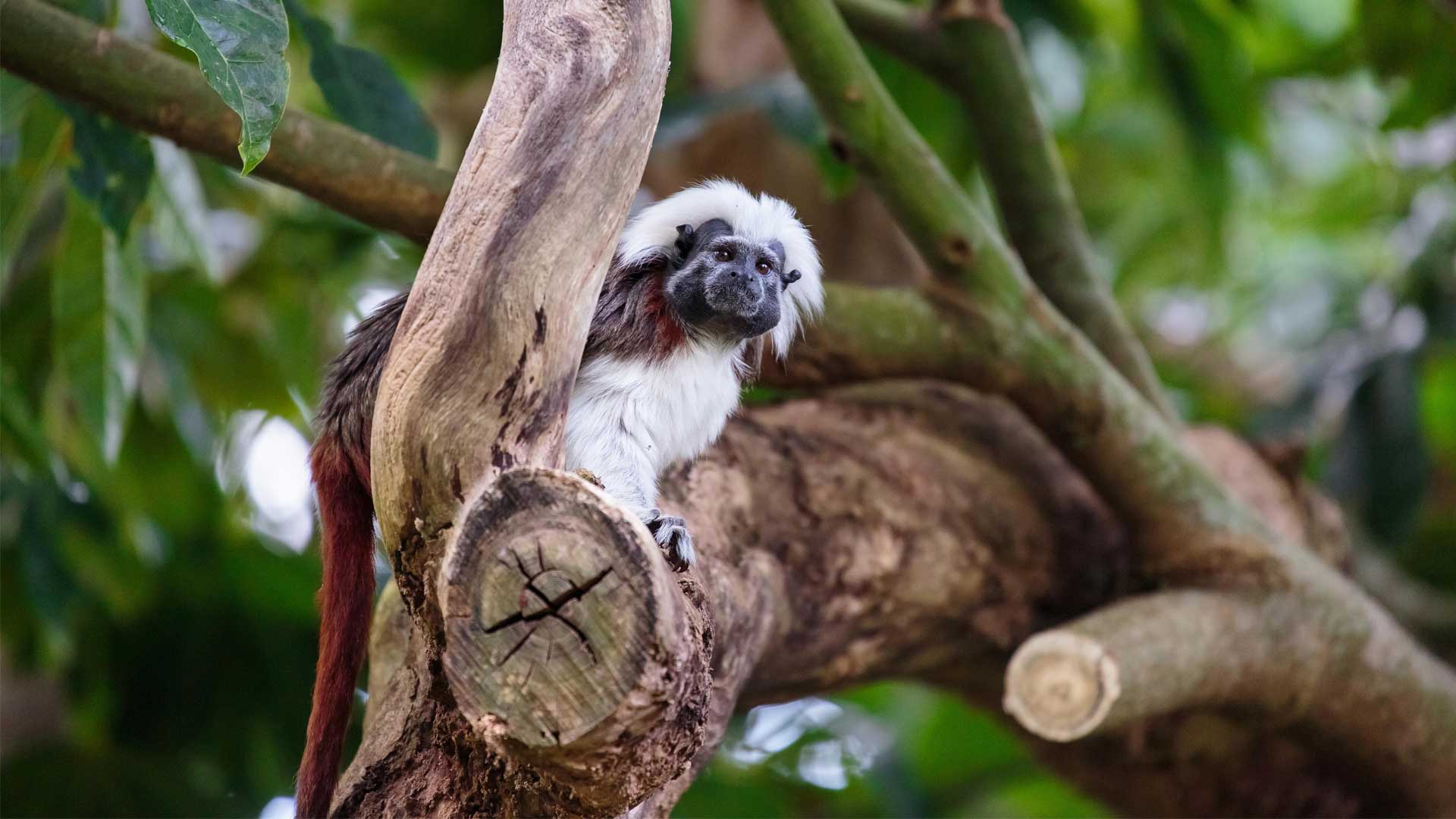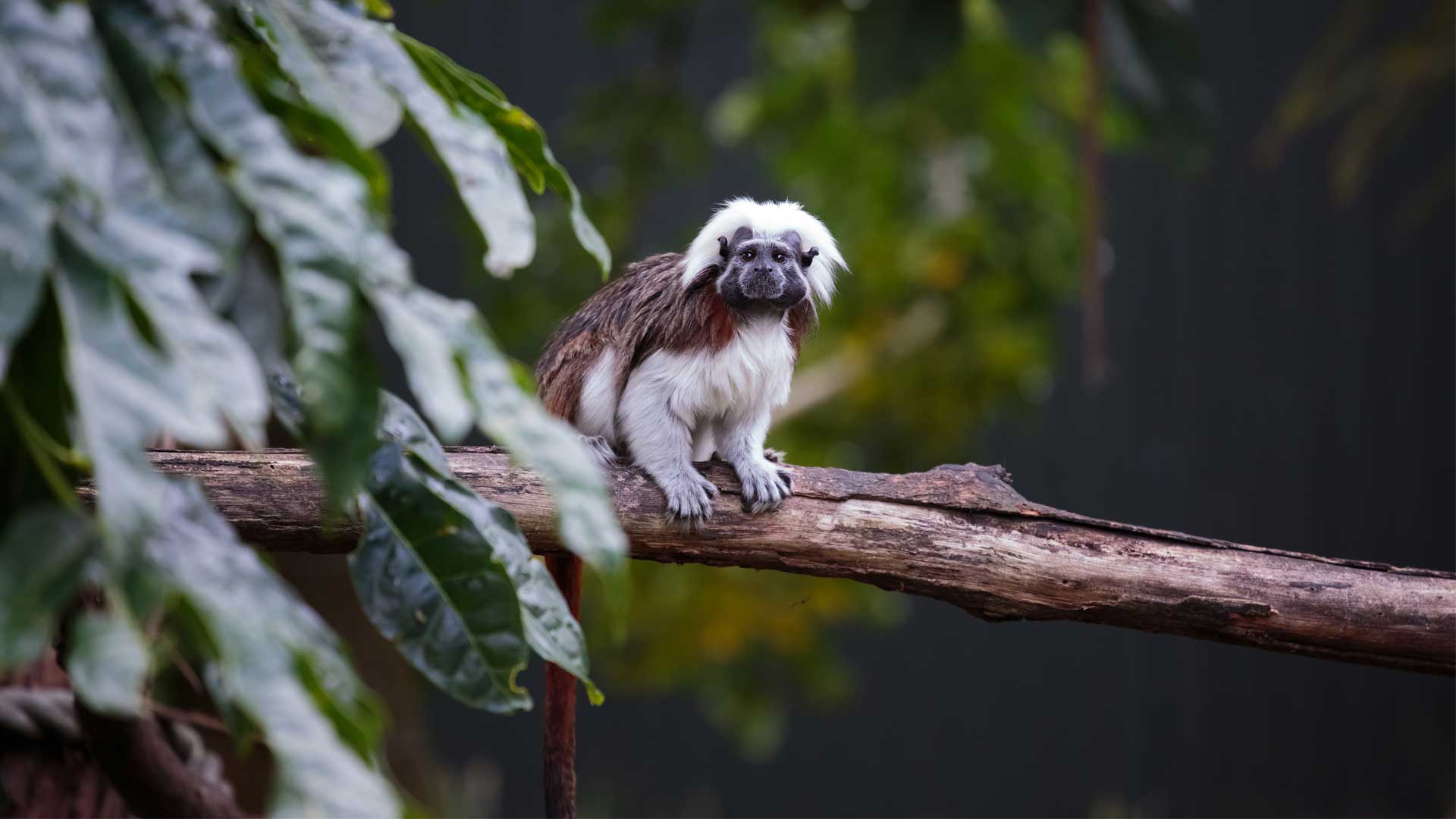You can now visit our cotton-top tamarins! This primate pair, a male from Germany and a female from Italy, are settling in well to their Rainforest enclosure.
Cotton-tops are critically endangered in the lowland forests of South America having lost 80% of their original habitat over the last 40 years to deforestation for agriculture, paper and timber supplies.
For this reason our cotton-tops have an important advocacy role at Auckland Zoo – to help our visitors to connect with the species and be a voice for their wild cousins. We are hoping that, like the cotton-tops that have come before them, this pair will also contribute to the international breeding programme for these special primates.
You can help their cause by buying only rainforest friendly products – look for the Forest Stewardship Council logo on all paper, timber and toilet paper products for a certification you can trust to protect our forests for future generations.
See these nimble monkeys climbing the trees of their new home in The Rainforest and look on the forest floor for our other new additions - three female agouti!


